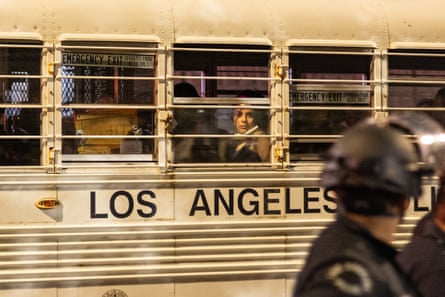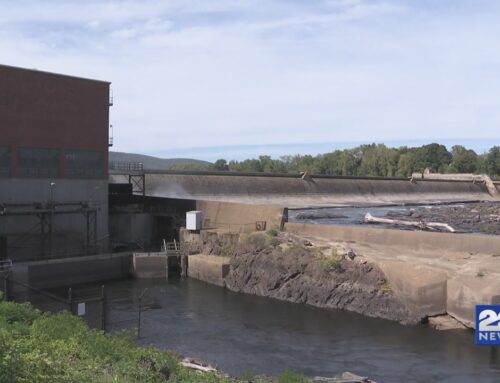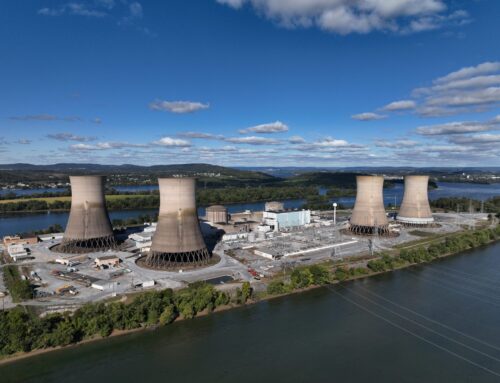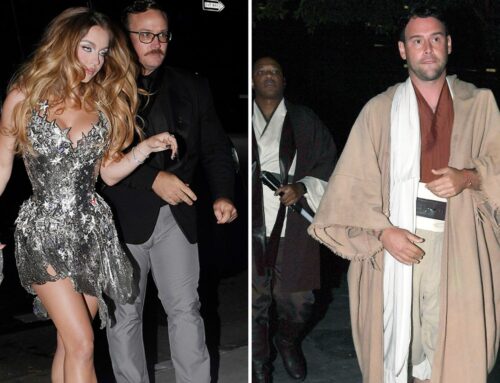Los Angeles vowed to host the Olympics without breaking the bank and environment. Can it?
September 29, 2025
Hosting the summer Olympics used to be a dream for many global cities, but it is now seen by many as more of a nightmare. There’s the cost of hosting – $10bn and up, in recent years – the displacement of local residents, the environmental toll, and the risk of being left, like Rio de Janeiro or Athens, with major debt and crumbling Olympic stadiums.
In the decade since Los Angeles secured its bid for the summer 2028 games, the city’s leaders have promised they will do it differently, and that Los Angeles is prepared to deliver world-class Olympics and Paralympic games in its “sunny, ideal weather”, all while keeping costs, environmental damage, and community disruption to a minimum.
This would be a challenge in any context, but it has grown far more difficult recently. Los Angeles has spent much of 2025 in crisis. The number of Hollywood projects being filmed in the region has dropped dramatically in recent years, leaving the region’s entire economy shaky. Then, in January, historically damaging wildfires made worse by the climate crisis burned down 16,000 homes and other buildings and killed 31 people. In June, federal agents began staging aggressive immigration raids across southern California, leaving many of the region’s millions of Latino residents terrified of sudden arrest. In response to protests over the immigration raids, Donald Trump sent in the national guard and US marines, and he and his officials have engaged in repeated attacks on the leadership of California governor Gavin Newsom and Los Angeles mayor Karen Bass.

With LA facing so many pressing environmental and political problems, some southern California residents are publicly questioning whether investing massive resources in the summer 2028 Olympics makes sense.
City and state leaders are staying firm: Los Angeles, the home of “many of the greatest storytellers on earth”, of Venice Beach volleyball and palm-tree lined Sunset Boulevard, is ready and willing to host the 2028 summer games.
With less than three years to go, experts agree that the city has set bold goals and faces steep challenges. But it is also doing well in some areas, opening the possibility that the city might break even on hosting the games, offering itself once again as a model for a smooth and budget-friendly Olympic Games.
That is, of course, if Trump doesn’t disrupt the effort.
Break even or break down?
Some recent summer Olympics hosts, including Brazil in 2016 and Greece in 2004, ended the games burdened by debt – and doubts over whether hosting the games was worth the tremendous cost to taxpayers.
Los Angeles, in contrast, is aiming to repeat the success of the city’s 1984 Olympics, which made a profit of $223m and created a new model of financial prudence for Olympic host cities. Pulling that off is crucial: the city is already facing a nearly $1bn budget deficit this year, with more economic woes on the horizon.
While the current budget estimate for the 2028 games has grown to nearly $7.15bn, organizers are aiming to cover that cost with corporate deals, licensing deals, ticket sales, and contributions from the IOC.
If costs go over budget or other sources of revenue fail, Los Angeles and California taxpayers will ultimately be on the hook: the city signed a contract with the IOC agreeing to cover the first $270m in cost overruns, while the state of California will cover the next $270m, and Los Angeles taxpayers will have to fund the remainder.

But organizers of the Los Angeles 2028 Olympic committee, a privately funded non-profit, say they are on track to deliver the $2.5bn in corporate sponsorship deals needed to make their plan work.
“We’ve driven significant commercial progress this year by securing 12 new partnerships to date, with more to come, and anticipate closing in on $2 billion in revenue by the end of this year with confidence that momentum will continue to build,” an LA28 spokesperson said in a statement.
Aiding LA in its goal to stay debt-free is its ambition to build as little new infrastructure as possible.
The city made its existing sports and hospitality infrastructure a center of its bid to host a lower-cost games, highlighting its wide range of already-built facilities, from the SoFi stadium, which has hosted the Super Bowl, to Dodger stadium, to the Los Angeles Coliseum at the University of Southern California, which hosted the 1932 Olympic Games. A Universal Studios backlot where Back to the Future was filmed will host squash games; the stunning beaches of San Clemente in Orange county will host surfing.
“The 2028 Games will mark the first time in Olympics history that no new permanent venues will be built to host the Games,” USC announced in a press release touting its participation.
Unlike in Paris, where an “Olympic Village” for athletes was constructed from scratch in a low-income area north of the city, Olympic athletes in LA will be housed at the University of California, Los Angeles, while the global news media covering the games will be housed at the USC. The city’s massive hotel, tourist infrastructure, and theme park infrastructure is already poised to host millions of visitors. Even experts who tend to be Olympics skeptics say those already-built, already-operating facilities put Los Angeles in a much better position than many other host cities.
In fact, the city’s infrastructure puts Los Angeles in a pretty good financial position, said Andrew Zimbalist, an economist who wrote a book on the “economic gamble” of hosting the Olympic games or the world cup.
“At the end of the day, I think there’s a decent chance that LA is going to break even,” Zimbalist said.
‘A no-car games’ – or at least a ‘transit-first games’
When Bass told interviewers during the 2024 Paris Olympics that Los Angeles was aiming to deliver a “no-car games”, many listeners were shocked (the Guardian even wrote about it). Was Los Angeles, city of bumper-to-bumper traffic that makes driving across town during rush hour impossible, really claiming it would deliver fans to the Olympics using only public transportation?
The answer was “yes” at the beginning: the city’s official bid to host the Olympics described its aim “that 100% of ticketed spectators travel to competition venues by public transport or Games transport systems designed specifically for spectators, such as shuttle bus systems”.
But with the games three years away, the official rhetoric about public transportation is already being watered down. The mayor’s office has since described the Olympics as a “transit-first Games” that will also “promote the use of zero-emissions vehicles”.
“The Games have always been transit-first. Mayor Bass has been taking urgent action to improve public transit in the region, including by securing funding to electrify Metro buses and strengthen critical infrastructure,” a spokesperson for the mayor’s office said in a statement.
One of the recently announced corporate sponsors of LA28 is Uber, which was named the “official rideshare and on-demand delivery partner”. Another was Archer, an electric air tax company that aims to transport “VIPs, fans, and stakeholders”.
“LA28 is committed to hosting a transit-first Games that prioritizes moving athletes, fans and games personnel effectively and efficiently to trainings and competitions while keeping LA residents moving throughout the region,” a spokesperson said, describing the use of Uber and Archer as “a key part of that plan”.
LA28’s recently released sustainability plan did reiterate one factor designed to radically limit the use of cars at the 2028 games: “No spectator parking will be available at or near most Los Angeles area venues,” it noted.

Meanwhile, the city has made progress with some key new transit developments, including finally extending its metro line to the Los Angeles airport.
“The vast majority of what’s being invested is being invested for the long-term health of transportation in LA,’ said Joshua Schank, the former chief innovation officer for the LA Metro system, and now a transportation consultant.
“Any time you have a major infrastructure undertaking, there’s going to be projects that are behind schedule,” he said. “ I think setting ambitious goals is a good thing.”
Schank said that many transit advocates see the attempt to hold a transit-first Olympics as a huge win for transit advocates – no matter how the attempt plays out.
“This is an opportunity for people to come to LA and experience the city differently than it’s ever been experienced before,” he said.
And, if the Olympics public transit “goes well”, it could build support for public transit in the future, Schank said.
One troubling sticking point is how the city is going to get funding to pay for an estimated 2,700 energy-efficient buses and the workers to drive them, a cornerstone of the current transit plan for the games. (Buses were a key part of the smooth functioning of the 1984 games.) The city is currently hoping the department of transportation will come through with $2bn for the buses, part of an overall $3.2bn federal funding request. The federal government provided support for supplemental bus programs to move spectators at the 1996 and 2002 US Olympic Games, a spokesperson for LA28 noted.
While Trump’s transportation secretary, Sean Duffy, has offered some hopeful rhetoric in a letter in June, an LA Metro spokesperson told the Guardian it had no new updates to share from the department or the administration since then.
“In the short term I don’t doubt [Trump will] put political pressure on for a variety of reasons,” said Daniel Durbin, the director of the Annenberg Institute of Sports, Media & Society at the University of Southern California. “I really do believe, in the end, the federal government will come through with money and support.”
“It’s going to be nerve-racking,” he added. “ I think there will be a lot of political infighting before the money comes.”
Another major concern for local organizers has been LA’s most vulnerable populations. Olympic host cities often prioritize looking prosperous and attractive to international visitors – which can mean trying to cover up or even raze neighborhoods that are struggling. During the 1984 Olympics, the Los Angeles police spoke openly about efforts to “sanitize” the city by hiding homeless people from sight.
“In Rio, they displaced 77,000 people who lived in the favelas,” said Zimbalist, the economist who has written several books about the Olympics. “In Atlanta, in 1996, they displaced tens of thousands of people who were living in the central city where they ended up building the Olympic Village. They tore down two neighborhoods that were minority neighborhoods–Black and brown people living there, and that’s very common.”

“In addition to tearing down neighborhoods and forcing people to be displaced: they build walls, so people traveling to Olympic events don’t see the poverty behind the walls and the television cameras don’t pick up the poverty behind the walls,” he added.
For 2028, Los Angeles has pledged not to displace local residents in order to impress tourists. But activists and community members are worried that the city will not keep that promise, particularly when it comes to harsh treatment of unhoused people.
There’s recent precedent for these fears: During the 2022 Super Bowl, activists accused LA officials of trying to “disappear the poor from the streets” when city employees destroyed a camp near SoFi stadium where unhoused people had been living in advance of the big game.
Los Angeles has also pledged to host a green games – as much as is possible for an event with a massive carbon footprint from spectators’ airplane travel to the city. The Los Angeles 2028 committee has pledged to improve further on the carbon reductions of the 2024 Paris Games, producing an additional 10% reduction in the games’ carbon footprint compared to Paris, according to a sustainability plan released this summer.
Some environmental activists are hoping the 2028 Olympics can be used as a “point of leverage” to get Los Angeles to act on its most pressing problems – such as the relative lack of tree canopy or other shade in many of the city’s lower-income neighborhoods, which Shade LA, a partnership between UCLA and different public agencies, aims to improve by the Olympics.
How much change that will bring is far from clear. “What’s missing right now is a firm commitment from the city and Olympic organizers – a number, a budget, something we can leverage,” Marcos Trinidad, a senior director of forestry at TreePeople, an advocacy organization, told the Los Angeles Times in August.
Then, of course, there is Trump, whose intense enthusiasm for hosting the Olympics near the end of his second term is matched only by the volatility he brings to the planning process.
From Trump’s sweeping travel ban, to his public, personal battles with Los Angeles officials, to his choice to his administration’s recent attacks on free speech, the president is creating many hurdles to a smoothly functioning event.
“Even if Trump doesn’t do anything directly that would hurt the LA 28 effort, he has created a lot of enmity internationally, and a lot of revulsion,” Zimbalist said. “There are a lot of people who won’t come because they’re politically not willing to support the Trump government by spending money here. We’ve already seen tourism in the US go down appreciably. That’s another big threat.”
But in the end, Durbin, the media expert, argued, Trump will probably do what he can to make the games a success: “I don’t think an individual of his type and his position is going to want to have his legacy tarnished by an absolutely abysmal Olympics.”
Search
RECENT PRESS RELEASES
Related Post




